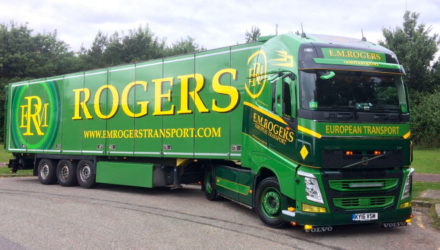Announcing extended company car benefit in kind taxation tables should be “among first fleet jobs” for the new government, says the Association of Fleet Professionals (AFP).
The industry body says it is now nearly two years since the current tables were announced and they only run until the 2027/28 tax year, meaning fleets buying vehicles today don’t know the tax rate their drivers will be charged towards the end of the decade.
Paul Hollick, APF chair, said: “There’s been something of a structural change in recent years, with the popularity of electric company cars on fleets meaning businesses have started operating longer replacement cycles to help offset their higher purchase cost, rising from typically three years to four or five.
“This means that we need the benefit in kind tables to extend longer into the future than was previously the norm. Our AFP Tax and Regulation Manifesto launched last week and one of its key demands is to see company car tax settled at least until the 2029-30 tax year. Clear, positive signalling is needed from the government to instil confidence for fleets buying future vehicles.
“In our view, this should be among the first fleet jobs for the incoming government, whoever that turns out to be, otherwise fleets are buying ‘blind’ without being able to tell drivers what BIK tax they will be paying in the future. That’s simply unfair.
“After a general election, the chancellor will normally create a Budget or Fiscal Statement within the first couple of months, and we’d very much like to see the new tables announced at that point. It’s an easy task and would create a much higher degree of certainty.”
Paul said that the AFP broadly accepted that benefit in kind rates on electric company cars would increase over time as they became widespread on fleets, but that it was important to maintain an incremental approach.
“Benefit in kind taxation on electric company cars has been rising at about one per cent every year and we believe that increases higher than this could easily prove counterproductive. While electric power has become almost the norm for many operators, it is largely the low hanging fruit that has been picked and we’re entering a more difficult phase.
“We’re now working our way through these trickier applications, notably where drivers don’t have charging available at their home or nearby, something that won’t be resolved properly until on-street charging infrastructure becomes widespread across the country. For these employees, low benefit in kind taxation is an important incentive to offset inconvenience.
“Also, as has been widely discussed, adoption of electric vans is proving much more difficult than for cars, and zero benefit in kind taxation for those van drivers should be maintained as long as possible in our opinion, alongside continuing exemption from road tax.”
Ian Hare, Managing Director of Motor Management, commented: “The Association of Fleet Professionals (AFP) has stated this week that the new government should review Benefit in Kind (BIK) tax tables urgently when it assumes office. The current tables only run until the 2027/28 tax year which means that fleets and company car drivers are buying vehicles today without knowing what their tax rate will be towards the end of the vehicle’s life on fleet. They state that there has been a structural change in recent years with replacement cycles extending from three to four or five years to help offset the higher purchase cost of Battery Electric Vehicles.
“I fully concur with the AFP views. However, this goes beyond electric vehicles; it is also relevant to petrol and diesel drivers. Replacement cycles have increased over the years as vehicles have become more reliable and higher mileage vehicles are more marketable in the used vehicle market as a consequence. I suspect that the overall annual mileage of company car drivers has also dropped. The pandemic changed habits. Online meetings are now part of normal business life thus reducing the need for travel.
“Another crucial factor concerns fleet policy decision making and implementation. Commentary has also been made by the AFP about the complexity of the fleet manager’s job these days. Before vehicles get purchased, fleet policy needs to be established. This is not just deciding about your transition from ICE to BEV vehicles. It involves negotiation of purchase terms with vehicle manufacturers and dealers (or negotiation with leasing and fleet management companies) before the whole life cost/ total cost of ownership is calculated to determine which vehicles should be acquired and/or what should be included in vehicle selection lists. The time taken to establish and implement this policy also needs to be considered in relation to the limited three-year timeline left relating to benefit in kind rates. Fleet operators should be forgiven if they defer fleet purchase decisions until after the general election!”



















